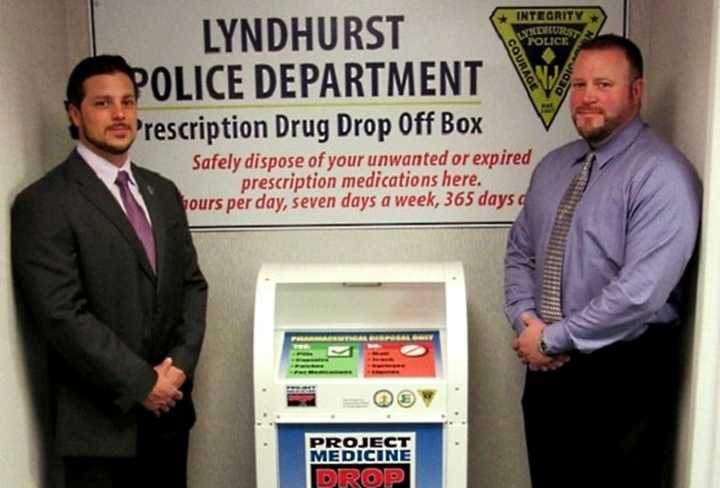State authorities have been expanding the program "in response to an overwhelming demand from law enforcement agencies that want to engage directly with their communities in the fight against opiate abuse," acting Attorney General John J. Hoffman said.
“We are seeing an equally strong and growing demand from New Jersey residents who understand the potential dangers posed by unused medications, and who wish to dispose of them safely and securely,” Hoffman said.
Since the program's launch four years ago, New Jerseyans have dropped off nearly 25 tons of medications.
Bergen County has 21 round-the-clock Medicine Drop boxes, more than any other county in the state. Ocean County is the next closest, with 15. Passaic County has nine.
FOR BERGEN, PASSAIC LOCATIONS, CLICK IMAGES ABOVE
Bergen County Prosecutor John L. Molinelli credited a “deep commitment” by the county Department of Health Services and Municipal Alliance Program, its Office of Alcohol and Drug Dependency, his office and police departments countywide to fight heroin and prescription drug abuse.
“Direct engagement with the public is an important key to preventing and reducing the abuse and diversion of prescription drugs,” Teaneck Police Chief Robert A. Carney said.
Covanta Energy, a nationwide operator of energy-from-waste and renewable energy facilities, destroys the drugs at no cost to taxpayers.
Before this, most people flushed their unused prescription drugs down the toilet, threw them in the trash, or kept them in their medicine cabinets. This contaminated the water supply, helped start and feed habits — often for children — and tempted thieves.
“The medication can either be disposed of in its original container or can be removed from its container and placed in the disposal box,” Fair Lawn Police Sgt. Brian Metzler said. “Liquid products should be disposed of in its original container with the cap tightly sealed, to prevent leakage.”
The drop box is “made to protect anonymity,” Lyndhurst Capt. John Valente said. “No questions or requests for identification will be made.”
In fact, Valente said, you should “remove the prescription label if it contains any personal identifying information.”
Click here to follow Daily Voice Lyndhurst and receive free news updates.




